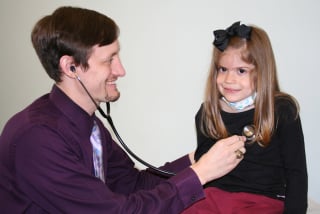CTSA sequencing is a molecular test used to identify variants in the gene associated with Galactosialidosis.
3 weeks
81479
$1,200
Galactosialidosis is a lysosomal storage disease associated with a deficiency the lysosomal protective protein cathepsin A (PPCA), which aggregates with beta-galactosidase and sialidase enzymes to protect them from degradation. Therefore a deficiency of PCCA results in a secondary deficiency of these enzymes. There are 3 distinct subtypes, early infantile, late infantile, and juvenile/adult. Clinical features common to late infantile and juvenile/adult subtypes include psychomotor delay and deterioration, hepatosplenomegaly, dysostosis multiplex, cherry-red macular spots and corneal clouding, heart defects, and renal involvement. Neurological symptoms are common to the juvenile/adult form, but rare in the late infantile form. The early infantile form is associated with hydrops fetalis, visceromegaly, skeletal dysplasia, and early death.
Molecular testing is useful to confirm the diagnosis and to identify the disease causing mutations within a family to allow for carrier testing and prenatal diagnosis.
Sanger Sequencing
The preferred sample type is 3-5 ml of peripheral blood collected in an EDTA (purple top) tube. Extracted DNA, dried blood spots, and saliva are also accepted for this test. Saliva samples must be submitted in an approved saliva kit. Contact the lab to receive a saliva kit or to have one sent to your patient.
The specimen should be kept at room temperature and delivered via overnight shipping. If shipment is delayed by one or two days, the specimen should be refrigerated and shipped at room temperature. Do not freeze the specimen. Samples collected on Friday can be safely designated for Monday delivery.
Prenatal diagnosis is available if the familial mutations are known. Additional fees for cell culture and maternal cell contamination may apply. Maternal cell contamination studies are required for all prenatal molecular tests. Contact the laboratory prior to sending a prenatal specimen.
Call our laboratory at 1-800-473-9411 or contact one of our Laboratory Genetic Counselors for assistance.
Robin Fletcher, MS, CGC
Falecia Thomas, MS, CGC
Alex Finley, MS, CGC
